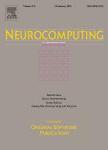版权所有:内蒙古大学图书馆 技术提供:维普资讯• 智图
内蒙古自治区呼和浩特市赛罕区大学西街235号 邮编: 010021

作者机构:Univ Shanghai Sci & Technol Dept Control Sci & Engn Shanghai 200093 Peoples R China
出 版 物:《NEUROCOMPUTING》 (神经计算)
年 卷 期:2020年第409卷
页 面:217-230页
核心收录:
学科分类:08[工学] 0812[工学-计算机科学与技术(可授工学、理学学位)]
基 金:National Natural Science Foundation Natural Science Foundation of Shanghai [19ZR1436000]
主 题:Distributed consensus control Event-triggered control Input delay Directed graph Uniform quantization
摘 要:In this paper, distributed consensus control protocols are given for linear multi-agent systems with input delay under direct communication graphs. Compared with the multi-agent systems under continuous communication, there are more challenges in the consensus problems of multi-agent systems under discontinuous communication. Furthermore, the consensus of multi-agent systems with control input delay and discontinuous communication are much more similar to the practical engineering situation, which further increases the difficulties of consensus control. Based on these discussions, two consensus problems, including leader following case and leaderless case, are studied in this paper. A prediction of the system s state information over the delay time is approximated by the zero input solution of the agent system model. We also propose a new discontinuous communication mode, which combines event triggered mechanism and a uniform quantization method. Unlike the existing discontinuous communication method, our proposed control protocols ensure that each agent decides when to transport its state information to its neighbors such that continuous communication between any two agents is no longer needed. In addition, through the non-smooth analysis of the closed-loop systems, the uniformly bounded consensus results are guaranteed, and the bound of the consensus error can be adjusted by choosing appropriate parameters. (C) 2020 Elsevier B.V. All rights reserved.